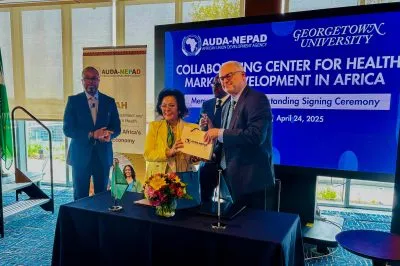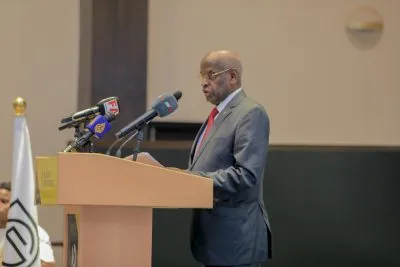This article was produced with the support of United Nations Economic Commission for Africa (ECA)
This was the consensus among panellists at a session on leveraging science and technology to advance Africa’s development goals and in particular, Agendas 2030 and 2063.
Kamalidini Souef, Minister of Posts, Telecommunications and Digital Economy, Comoros, said access and affordability are key to realising the full benefits of digitalisation and called for more to be done to improve digital access and tools.
He pointed out that countries are moving at varying speeds and some will have advanced more than others. In light of this, there must be more regional cooperation and knowledge sharing “so we can make this a win-win situation for all”.
Education and training were highlighted as essential to Africa’s digital aspirations.
Prof Martiale Zebaze Kana, Head of Science for UNESCO’s Regional Office for Southern Africa, said the organisation is helping African countries build capacity, setting up centres of excellence in some countries to make training widely available.
Prof Ndirangu Kioni, Head of Research Innovation and Entrepreneurship Education Office, Kenya, argued that technological skills must be linked to problem solving in local communities.
“Academia must not just be about formal education but must be linked to communities and to industry,” he stressed.
His institution, he said, embeds students in communities where they can assess problems and co-create solutions with locals, bringing down barriers and contributing to solutions.
Dr Joy Kategekwa, Strategy Adviser on Africa at the UN Development Program, observed that a fragmented ecosystem, lack of early-stage risk capital and an education system that does not foster innovation and enterprise are holding back young people from participating fully in the digital revolution.
The UNDP is backing Timbooktu, a project that seeks to mobilise $10bn over 10 years to invest in startups across the continent. It includes investing in centres of engineering excellence, innovation hubs and derisking capital to crowd in more investment.
She charged African governments and investors to support the initiative.
Dr Semeneh Kekis, Technology Advisor to Ethiopia’s Minister of Innovation and Technology, emphasised the need to engage constructively with the African diaspora and encourage them to invest in local entrepreneurs.
Alex Nyingi, Emerging Markets Public Affairs Manager at Google, called for deeper cooperation between the public and private sectors as well as investments in infrastructure and training to build the workforce of the future.


 Sign in with Google
Sign in with Google 



